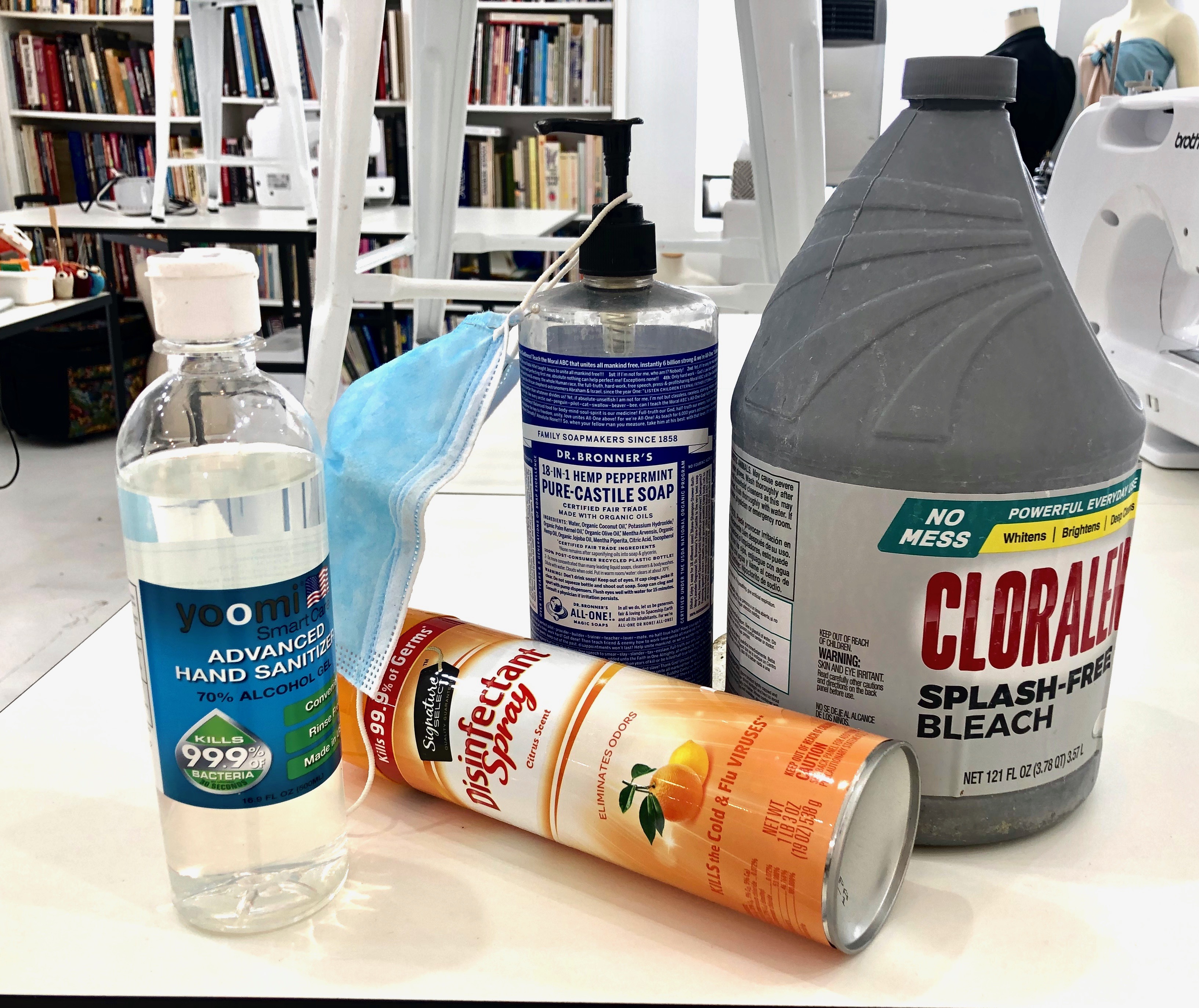COVID-19 has changed everything.
We are doing our best to adapt so that you stay safe!
One of the things that is really important as we are all opened up is doing it as cautiously, safely, and smartly as possible. Some of the procedures we’ve established may be overkill, some of them extreme, and all of them would have raised an eyebrow or two just a year ago and put us into Howard Hughes territory.
In helping build and develop the sewing community in Chicago the past 20 years, we also see it as our role to protect it. It does no one any good to dive in and host classes if it gets people sick or kills them. We take this seriously and we take your health and safety seriously. We’ve reviewed the current understanding of how the virus spreads as well as some new information that is beginning to filter in. We’ve constructed this set of protocols with the assistance and input of two students who are surgeons and used to thinking in terms of safety and sterilization.
Let’s talk a little about how the workrooms are handling the pandemic and your safety.
-
People
• Tchad is staying in phase 1 & 2 of the lockdown for the duration of the Fall and Winter sessions. He lives behind the workroom building, so he’s limiting himself to the apartment and the workrooms as if it were still April. This is going to be the norm for the foreseeable future. In limiting his contact with the outside world, he is also limiting yours.
• Masks are worn at all times in the workroom, regardless of whether students are here or not. There is never a time in the workroom when students and Tchad are not wearing masks.
• We have suspended tea & coffee service (sigh… it was such a nice civilized touch) and have cancelled all of the snack and refreshment tables. Students can bring in their own snacks and drink, but we ask that it stay contained and is consumed in the unused video room. This is not the time for unmasked communal eating indoors.
• For those who would like extra protection, we have disposable gloves and face shields available.
• Hand sanitizer is available throughout the class.
• We start the classes by washing hands as soon as students arrive before we start working.
-
Cleaning
• We’ve taken a really thorough approach to the cleaning and sterilization process and have fine-tuned it over the past three weeks into a routine that we feel is above and beyond what is required.
• We’ve scheduled one hour between classes so that students don’t come into contact in-between the classes. This also gives Tchad time to clean.
• Our cleaning process between classes: Every table, machine, tool, and stool is wiped down with a CDC recommended sterilization solution. This also includes the cords of the machine, the electrical outlets they plug into, and the handles of all irons and scissors. All trays of tools – pincushions, seam rippers, tracing wheels, &c are sprayed with disinfectant and left to air dry. We have tried to limit the chance of cross-contamination as best as we can and think that we have hit the mark.
• All doorknobs and entry touch-points are cleaned and sanitized every 2 hours in the entry, main workroom, the restroom, and the ancillary workrooms.
• There is a one-gallon jar with a spigot full of CDC recommended sanitizing solution for the small things that crop up that cannot be handled by hand sanitizer or washing with soap and water – eg wiping down the handle of a shared tool you borrowed or lent.
-
Filtration Systems
• Both of our air conditioners have been upgraded to HEPA filtration to help protect against airborne contamination. We are also running a dehumidifier and air purifier in the space with the same HEPA protections. All air filters are vacuumed between each class and nightly.
-
Social Distancing
• Our worktables are usually set up with 6′ of working space for each student. We have reconfigured the space and table placement to provide 8 feet of working space per student by spreading the tables out while preserving the ability to chat in the space. We’ve also opened the space we normally use as production space for ironing tables so that there are no clumps of people waiting for irons.
-
Just a Little Bonus…
• Tchad has a small rooftop garden behind the workroom, so we bring up fresh flowers and lavender every day to take the edge off of all the smell of cleaning. It isn’t much, but just to have some pleasant normalcy in the midst of this is something we all need. So the smell of thyme and lavender in the air may help get us through this in some small way.
And that’s about it! Hopefully we’ve provided you with some insight into how we are handling this and just how precious we think you are.
• Floors are vacuumed with a HEPA filtration vacuum 3x a day and the floors mopped with the same CDC recommended disinfectant solution that we use on the tables and tools.
• Any supplies left by students at the workroom (fabrics, machines, tools, notions, &c) are cleaned with this same process and left untouched on the tables in the ancillary workroom until the student comes back for them. They aren’t left for others to touch and they aren’t moved and handled unnecessarily.
• Tchad has been altering the way he interacts with students so that he is able to limit personal contact while still providing a good interactive class experience. For fittings and muslins, the student can request he wears gloves.
